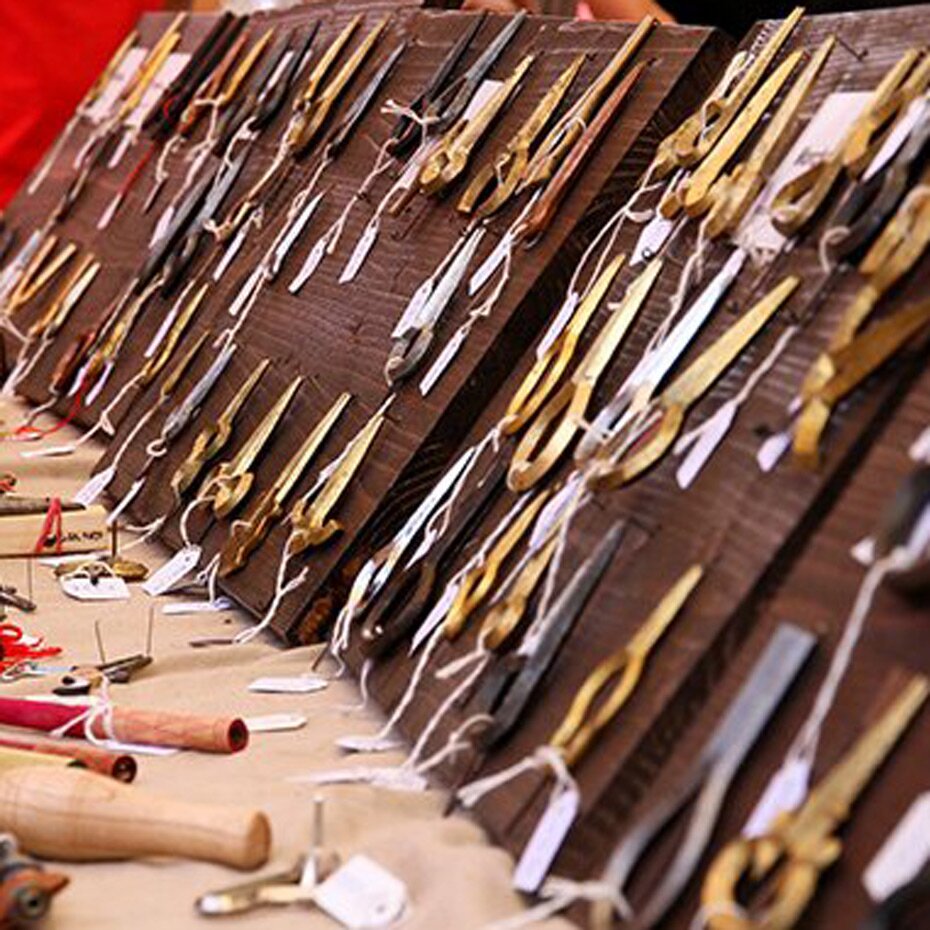The term "jew´s harp" is by far the most commonly used name in English for the musical instrument. The incomplete history of the word continues to raise doubts about its usage - the origin of the term "Jew's harp" has always defied explanation. The same counts for the term "Maultrommel" in German-speaking areas – an article regarding the pros and cons of ahistorical terms:
Back in 1994 Frederick Crane of the US-American Jew´s Harp Guild argued that in the future the medieval term "trump" should be introduced instead of the phrase "Jew´s Harp" to describe the instrument. By renaming the instrument "Trump" one would pave the way for a new start for the musical instrument. Far too often the Jew's harp had been underestimated and laughed at - as a child's toy, as not one bit musical and banal. In addition comes the fact that no connection can be shown between the Jew's harp and Jewish culture. Pat Missin, a harmonica expert, expresses himself in a similar way on his website: "I favor the French term guimbarde, "jew´s harp" is simply not appropriate."
Even the term "Maultrommel" in German language is basically misleading. Literally speaking, "Maultrommel" means "a drum that is played with the mouth" or even in the sense of a slap in the face, "hit on the mouth." The historical formation of the word "Maultrommel" is derived from the Middle High German words "Trumpe", "Trumbe" or "Trumme". The words refer to both trumpets as well as drums. That´s also why in the genealogy of the term the word "mouth trumpet" appears. The terms "mouth harp", "mouth organ" and "mouth violin" can also be substantiated. The Sorbs make use of the onomatopoeic term "Brumla", which is derived from the word "brummen" ("buzzing" or "humming").
The fact that renaming the mouth drum or Jew's harp in "trump" or "guimbarde" is suggested, expresses a need for reorientation. The sound and the meaning of the word relate to an instrument-specific history of music. The history of a musical instrument plays for many people an important role in identifying themselves with their musical instrument. Specifically, the reference to a history for which there is no evidence, as in the case of the "Jew's harp", is highly unsatisfactory for designing a contemporary Jew's Harp biography. Frederick Crane sees a new name also as an opportunity that the Jew's harp can strip off its history as an underrated musical instrument.
Despite the well-founded demand for a linguistic restart, the term "Jew's harp" still continues to be predominantly used in a general context. This also has an explanation, that the term "Jew's harp" until now has been used with broad social consent. When a Jew's Harp or mouth harp is spoken of, many people understand what musical instrument is meant. Will this also be the case when someone talks about the "trump"? The "International Jew's Harp Society" (IJHS), the organisation which ostensibly represents the musical instrument , makes use of the term "Jew's Harp". This should at least for the time being, seal the choice of the term. (Even though the "International Council for Traditional Music" also successfully experienced a programmatic repositioning by abandoning the term "folk music" in 1981.)
Nevertheless some things change in practice. Jew's harps for example are largely sold using their regional name. The use of regional-specific names is part of the global charm, which makes the Jew's harp very special and draws people to the instrument. Thanks to the work of Phons Bakx, who compiled over one thousand names for the Jew's harp worldwide in a register ("The 1000 Names of the Jew's harp") a multitude of instrument descriptions exist today. Phons Bakx's dictionary of Jew's harp names is published online. One of the most incredible and probably most global terms for the Jew's harp is the Vietnamese neologism by Tran Quang Hai: Dan Moi, "the instrument that is played on the lips". If Dan Moi were to become established in the linguistic usage of some Jew's harp players that would be a nice rejection of the eurocentric sovereignty of definition.

